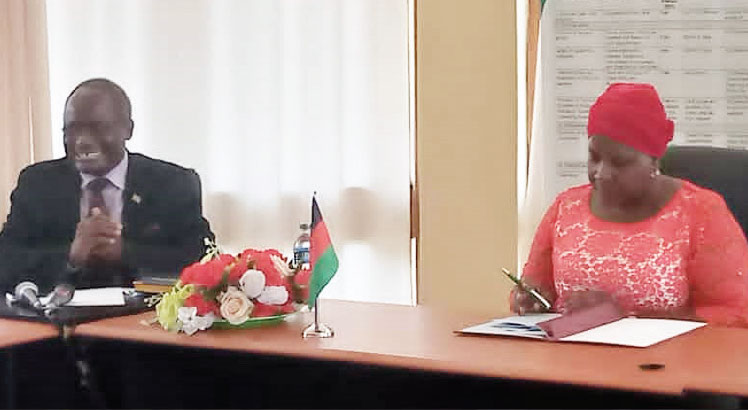Ministry seeks K20bn to fight cholera
Ministry of Health has unveiled a six-point National Cholera Response Plan estimated to cost about K21 billion to eradicate the pandemic within two months before the rains start.
Speaking at a press conference in Lilongwe yesterday, Minister of Health Khumbize Chiponda said looking at the increase in cases, the revised plan is designed to stop new infections.
She said the plan will also help to manage current cases so that when the rain season starts in two months there should be no cholera case.
The minister said to implement the plan within 66 days, government needs about $20.6 million and a contribution of $6.2 million from partners leaving a gap of about $14.3 million.

Chiponda said: “The plan includes priority interventions from a national perspective and detailed district plans. The Ministry of Health together with the Ministry of Water and Sanitation are also looking at the medium to long-term solutions to the cholera problem.”
The outlined six focus areas include strengthening coordination through various committees at district and national level, strengthening of rapid detection of cases through surveillance/investigations, transportation and testing of specimens.
Under the plan, government also intends to improve water and sanitation to effectively prevent and control the spread of cholera through provision of safe drinking water and chlorine.
The plan also considers drilling boreholes in affected communities and improved provision of medical care to patients.
The minister said part of the resource mobilisation strategy is to reach out to companies in Malawi.
Chaponda, thus, appealed to the country’s donor partners to join in the fight against cholera in one way or another.
World Health Organisation (WHO) country representative Dr. Kimambo Neema Rusibamayila said they stand ready to support Malawi just they have been doing since March.
She said using their strategic global position they will help lobby for more support towards this case.
Said Rusibamayila: “We will support the response and it is not only at the country level, we have support from regional level, global level in terms of securing cholera vaccines.
“We will continue in this fight and we already have technical support from outside the country to support research.”
She said the role of WHO is also to see how to bring in other partners to support priorities of the government of Malawi.
Rusibamayila further said they have, so far, provided cholera supplies worth $54 000 or about K54 million and trained over 800 health workers and that the vaccine support, excluding operational costs, has cost more than $900 000 or K900 million.
Malawi University of Business and Applied Science environmental health specialist Professor Save Kumwenda said the plan and the time-frame does not seem realistic, arguing that it will take a lot of effort and commitment for the government to achieve its objectives before the rains start.
He said: “We could be saying water, sanitation and hygiene [Wash] infrastructure were damaged due to tropical storms, therefore, exposing the larger populations to risks of cholera.
“But research will inform us exactly where the problem is. It is from lack of pit latrines or lack of sources of safe water. Once we know we will have an idea where to focus our attention. I hope the plan is a product of research.”
Kumwenda, who is also president of Environmental Association, said by investing in research and the Ministry of Health will have clear answers as to what could have triggered a boom in cholera cases during the dry season.
Ministry of Health Principal Secretary Dr. Charles Mwansambo said the 66 days of implementation of the plan is enough to stop cholera spread.
Parliamentary Committee on Health chairperson Mathews Ngwale also expressed hope that it is possible to raise the required amount from donors.
Since March when the first case was reported in Machinga, a total of 3 737 cases have been reported across 22 districts with 106 deaths.





